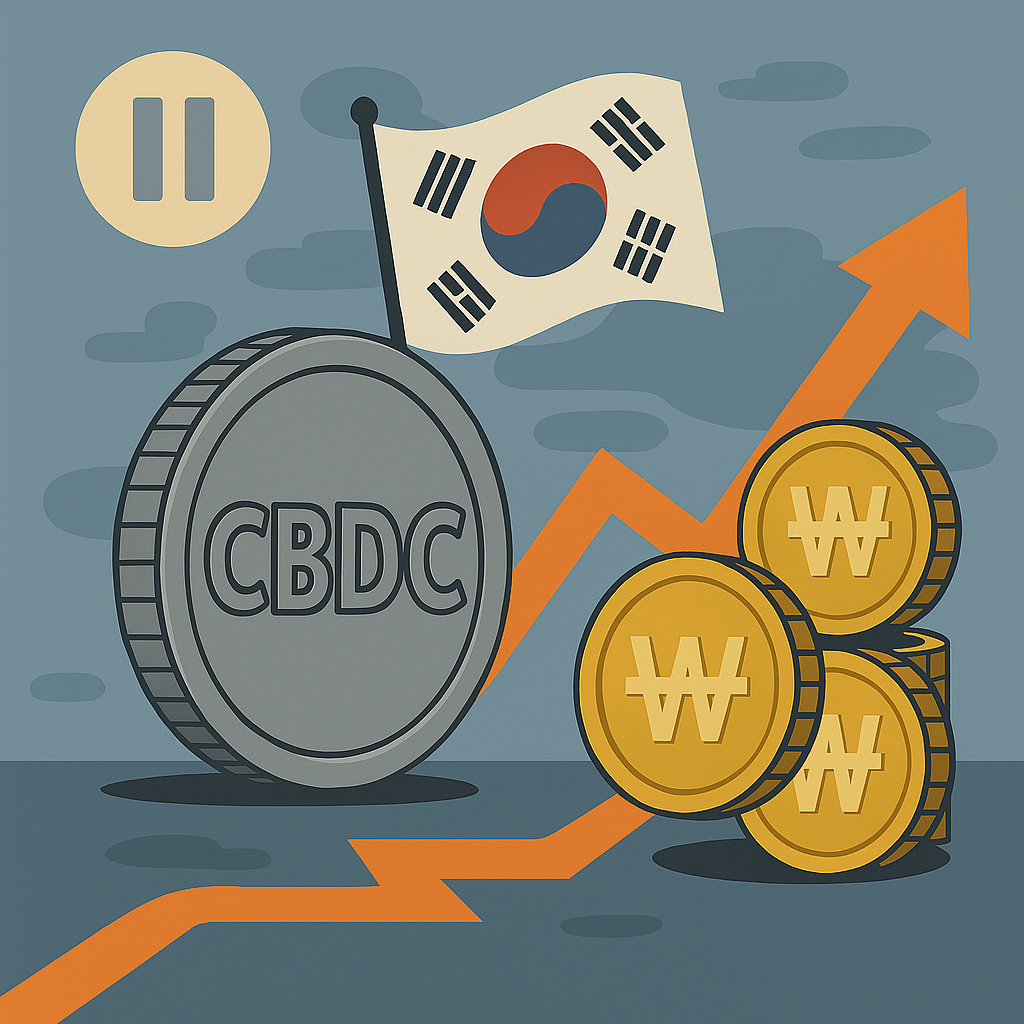
South Korea Suspends CBDC Initiatives as Stablecoins Rise
The South Korean government has halted its Central Bank Digital Currency (CBDC) pilot project amid increasing adoption of stablecoins, reflecting a significant shift in the nation's financial strategy.
South Korea Suspends CBDC Initiatives as Stablecoins Rise
The rapid uptake of stablecoins has curbed South Korea’s plans for a Central Bank Digital Currency (CBDC), prompting the government to pause its ongoing CBDC trial program that launched in April.
The Bank of Korea (BoK) released a statement via Bloomberg on June 30, 2025, confirming the halt in trials. A senior figure from one of the banks involved in the program remarked that they would hold back until the government’s approach to stablecoins is clearer and how they can work with CBDCs.
Newly elected President Lee Jae-myung has shown support for stablecoins, suggesting their potential to solve crucial issues in the financial sector. In his proposals, he suggested that companies with reserves as low as 500 million won (around $370,000) should qualify to issue stablecoins.
JUST IN: 🇰🇷 SOUTH KOREA PAUSES PHASE 2 OF CBDC TRIALS AS BANKS TURN TO STABLECOINS Recently: Biggest Korean Bank Files Stablecoin Trademarks for New Consortium
— cryptonary pro (@cryptonary_pr0) June 30, 2025
However, not all stakeholders are pleased with the swift moves towards stablecoins. BoK’s Senior Deputy Governor Ryoo Sang-dai has advised caution, urging a gradual development of bank-led stablecoins to safeguard consumer interests.
Key Insights
- The central bank is taking a conservative approach until stablecoin strategies are fully defined.
- Ryoo calls for a calculated rollout of reliable bank-backed stablecoins that respect customer safety and market equilibrium.
- Approximately 14% of total investments in South Korea are funneled into crypto, demonstrating the widespread fascination with digital assets among citizens.
In light of these developments, it appears that the landscape of digital currencies in South Korea may soon transition as government strategies evolve.


